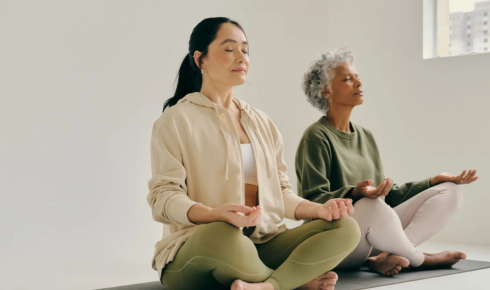What Is Relaxation and Why Is It Important?
Relaxation is the process of calming both the mind and body, allowing stress and tension to ease. It involves shifting away from the constant demands of daily life and creating space for stillness, balance, and recovery. Whether through deep breathing, meditation, or gentle physical activity, relaxation techniques support mental clarity and emotional well-being. These practices encourage the nervous system to slow down, which can improve sleep, lower stress levels, and enhance overall health.
Mind-body harmony is best achieved when relaxation becomes a consistent part of daily life. Different approaches, such as yoga, mindfulness, or traditional methods like Hawaiian massage, can promote a deep sense of calm and connection. By engaging in relaxation practices, individuals restore energy and cultivate resilience, making it easier to navigate life’s challenges with balance and ease.
How Relaxation Affects Mind-Body Balance
Relaxation practices positively influence mind-body balance by activating the parasympathetic nervous system, the “rest and digest” state that counteracts the “fight-or-flight” stress response. This leads to physiological benefits such as a slower heart rate, improved digestion, and lower blood pressure. Techniques like controlled breathing and progressive muscle relaxation are effective in reducing stress intensity, thereby mitigating chronic anxiety and mental fatigue. The mind-body connection is strongly supported by evidence showing that negative thoughts and stress can manifest physically (e.g., headaches, digestive issues, insomnia), while positive emotional states promote overall wellness. Regular moments of stillness enhance this connection, fostering greater physical and mental resilience.

Popular Relaxation Techniques to Try
There are many accessible ways to begin a relaxation routine, no matter your experience or lifestyle. Here are some proven techniques:
- Deep breathing exercises: Inhale slowly through your nose, hold briefly, then exhale through your mouth. Repeat 3-5 times.
- Progressive muscle relaxation: Tense each muscle group from your feet to your head, then release.
- Guided imagery: Close your eyes and visualize a peaceful place, focusing on sensory details.
- Gentle yoga or stretching: Move slowly and mindfully to release tension and improve flexibility.
- Listening to calming sounds: Play soothing music or nature recordings to quiet the mind.
Consistency makes a difference. Try a few practices to discover which helps you feel the most at ease.
The Surprising Benefits of Regular Relaxation
Regular relaxation, even for just ten minutes daily, offers many benefits beyond peace. It improves mood, focus, and sleep quality, reduces headaches, chronic pain, and helps regulate blood sugar. It also boosts immunity, reduces stress hormones like cortisol, and promotes emotional balance. These effects increase resilience, engagement, and harmony in daily life.
The Role of Mindfulness in Relaxation
Mindfulness, defined as being present without self-judgment, is crucial for effective relaxation. Techniques like mindful breathing and body scans enable individuals to observe sensations and thoughts without becoming overwhelmed. Practices such as meditation, tai chi, and conscious movement incorporate mindfulness to train the mind for calmer responses to life’s stressors. This approach is gaining popularity for its ability to alleviate stress, manage anxiety, depression, and chronic pain. Recognizing and releasing tension, the body becomes more resilient to stress, fostering peace and clarity.
Finding Balance Through Relaxation
Incorporating relaxation into daily routines is a luxury and a necessity for overall well-being. By embracing practices that calm the mind and body, individuals can reduce stress, strengthen resilience, and nurture lasting harmony. Whether through mindfulness, movement, or traditional methods, consistent relaxation supports a healthier, more balanced life.

